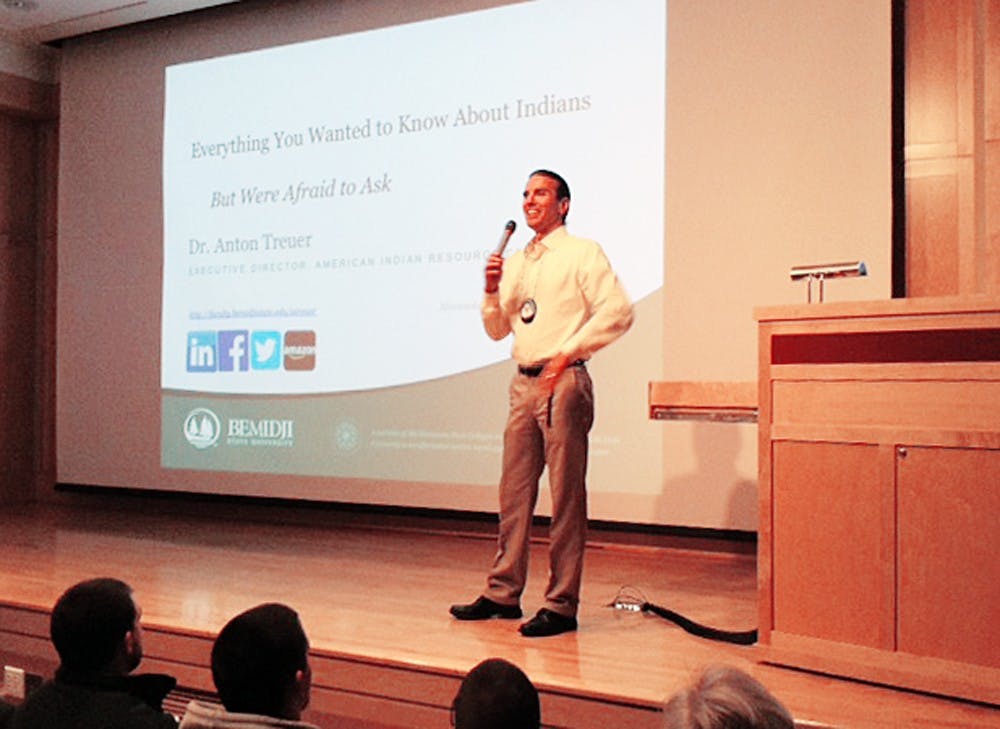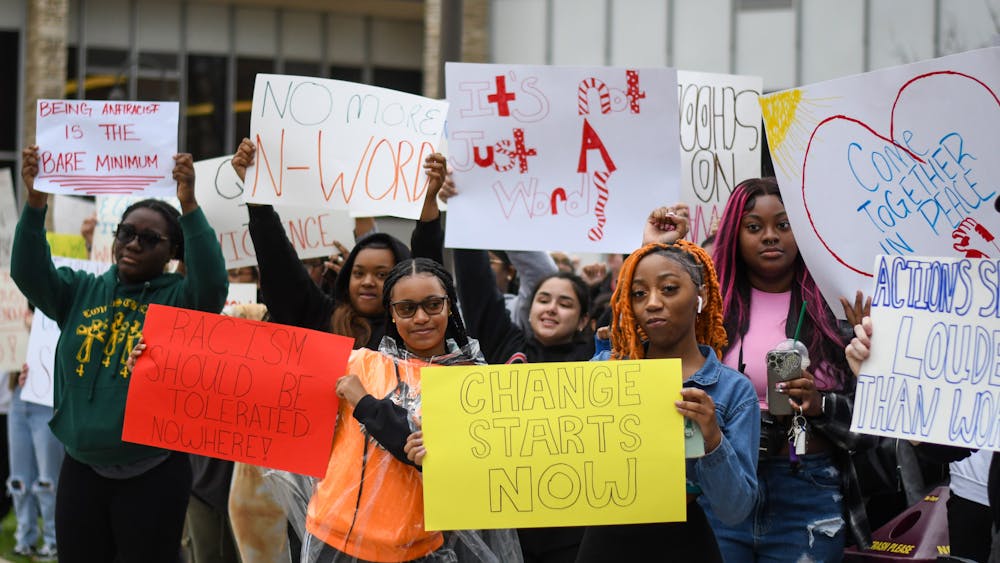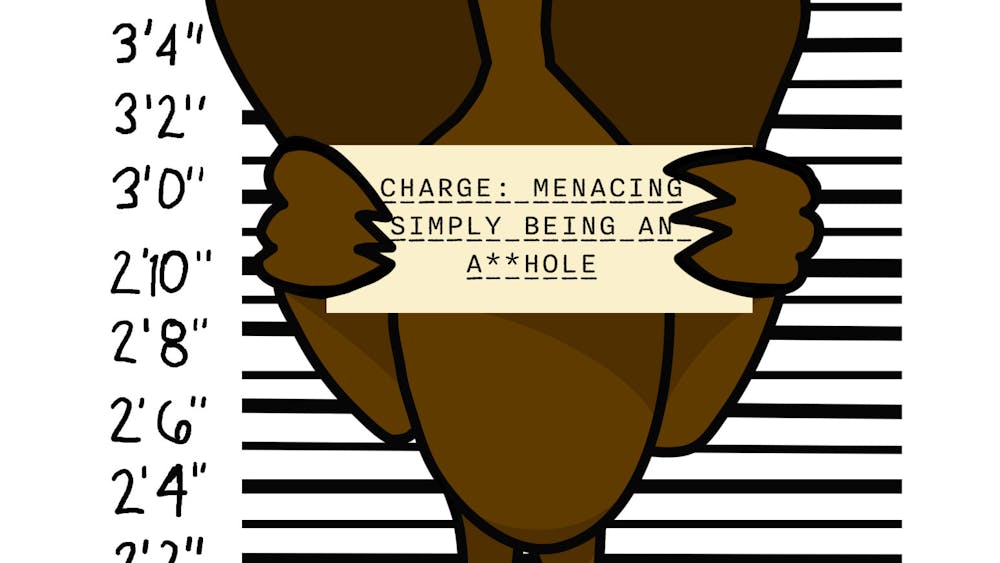Changing perspectives: Treuer breaks down cultural questions
Anton Treuer attracted a house of students and community members to the Park Library Auditorium Thursday night for his keynote address “Everything You Wanted to Know About Indians But Were Afraid to Ask.”
Executive Director of the American Indian Resource Center at Bemidji State University and a published author, he drew applause from the crowd that spilled into the aisles when he announced that Central Michigan University needs to do away with its Chippewa mascot.
“It’s not the case that everybody is racist or that everybody is stupid, but somebody always is,” Treuer said. “If one person says ‘It doesn’t bother me’ and someone else says it does, we can’t just brush that aside. To me it’s a no brainer. Frankly, I think your name needs to change too.”
Treuer applied examples of the Florida State Seminoles, whose Native nickname has been in place since 1947, and the Central Michigan University Chippewas. Both teams and universities have agreements with the local Native American tribes which allow them to use the names.
In 2002, then-President Rau and then-Chief Kahgegab signed a resolution that spelled out the relationship that would hence exist between the Tribe and university. The agreement includes the Tribe’s official approval of the university’s use of the Chippewa name as a mascot for sports:
“This mutual relationship is evident in the Saginaw Chippewa Tribal Council continuing its
support of Central Michigan University’s “Chippewas” nickname, which the university uses as a sign of pride,
honor, and respect for the tribe’s rich heritage.”
Treuer said the problem with mascots being used to “honor” local tribes is that the deep-seated culture of sports leads to Native Americans being portrayed more as caricatures than as real, living people. The spirits of friendly competition that exists in sports also leads to the ridiculing of the Chippewas by the opposing team, he said. No matter the mascot, it will be subject to automatic defamation by an opposing team.
“This is one of those areas where not all native people are of exactly the same mind,” Treuer said. “There are native people who take no offense whatsoever. It is also true that most native people do have a major issue with the use of native names and imagery as mascots for sports teams.“
Olivia Haas, a freshman from Warren, said she had never thought about the CMU mascot as causing more trouble than it was worth until she heard Treuer speak. She and freshman Haley Guest, of Lake City, attended the event for their philosophy class focusing on moral problems and were impressed with what he had to say.
“The fact that they had to email us and say ‘only paint your face like this,’ whereas if they would just change (the name), they wouldn’t have to go through the work,” Haas said. “It makes total sense. If you have to go through the trouble of telling someone not to do something, you probably should just avoid it at all costs.”
Guest said that while the issue doesn’t effect her on a personal level, she believes it’s important. If there is going to be a Native mascot, it should only be used as specified by the Tribe.
“I guess if people are respectful of the Tribe, or whoever, is asking, (it’s ok),” Guest said. “I came to this presentation because I know, being at Central, it’s a problem with the Chippewa being our name.”
Both students said they felt their knowledge of current Native American issues was not sufficient before they attended Treuer’s speech.
Without more people besides Native Americans speaking up on the issue of Native mascots, Treuer said there is little hope of making a difference.
“The silence on Native imagery in sports, to me, is deafening,” Treuer said. “It’s not going to change if it’s just me talking about it or advocating on it, or saying it bothers me. It’ll take allies. People who understand it and are brave enough to talk about it.”
Treuer also touched on other hot button issues such as retention of Native American languages, the gaming industry, differences in religious practices and more.
Director of Native American Programs Colleen Green said she and the students in her office brought Treuer to CMU for his availability and his prominence in both the Native American and scholarly communities. She encourages students to attend all the events being held for Native American Heritage month to continue broadening their understanding and education.
“He brings a lot of knowledge and it brings a different perspective,” Green said. “I have a strong belief to educate all of our students on all different persons and cultures, not just Native Americans. They should open themselves up.”





